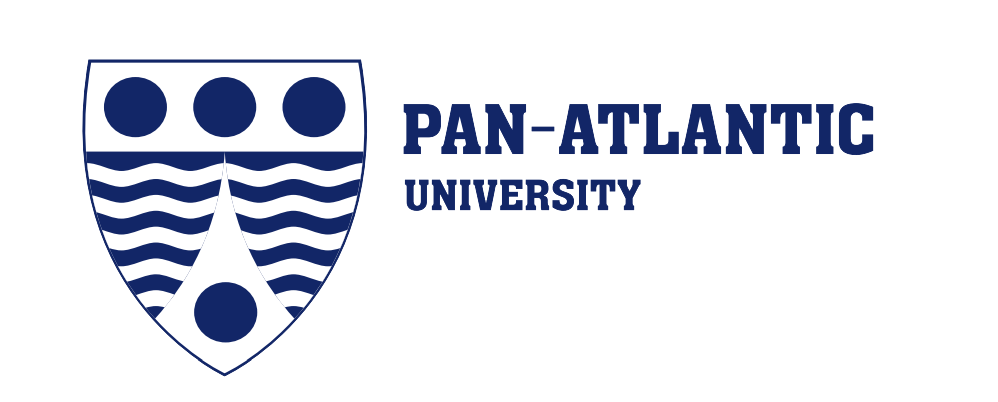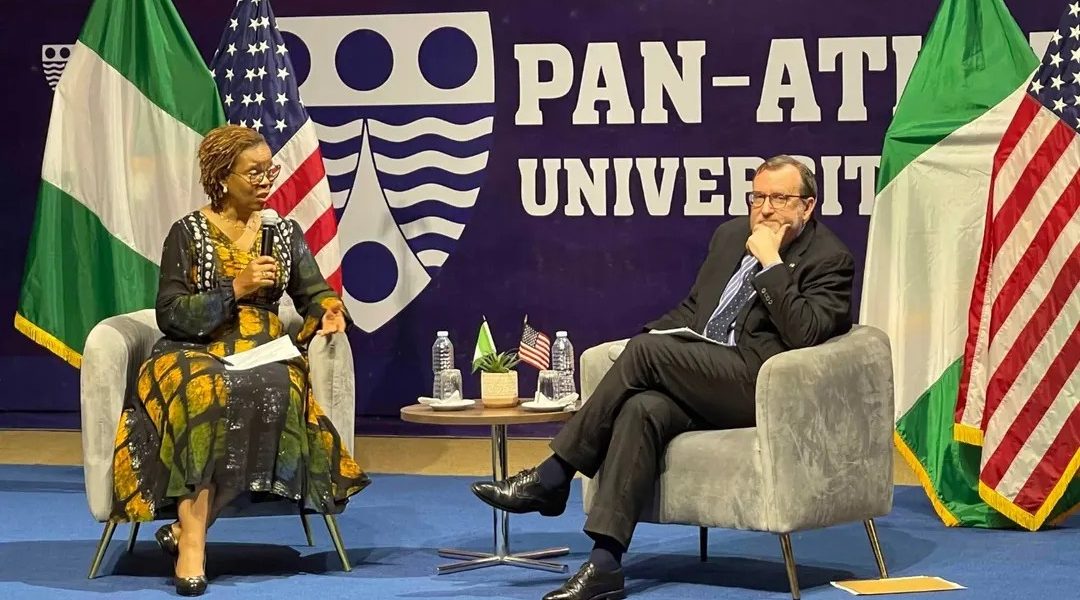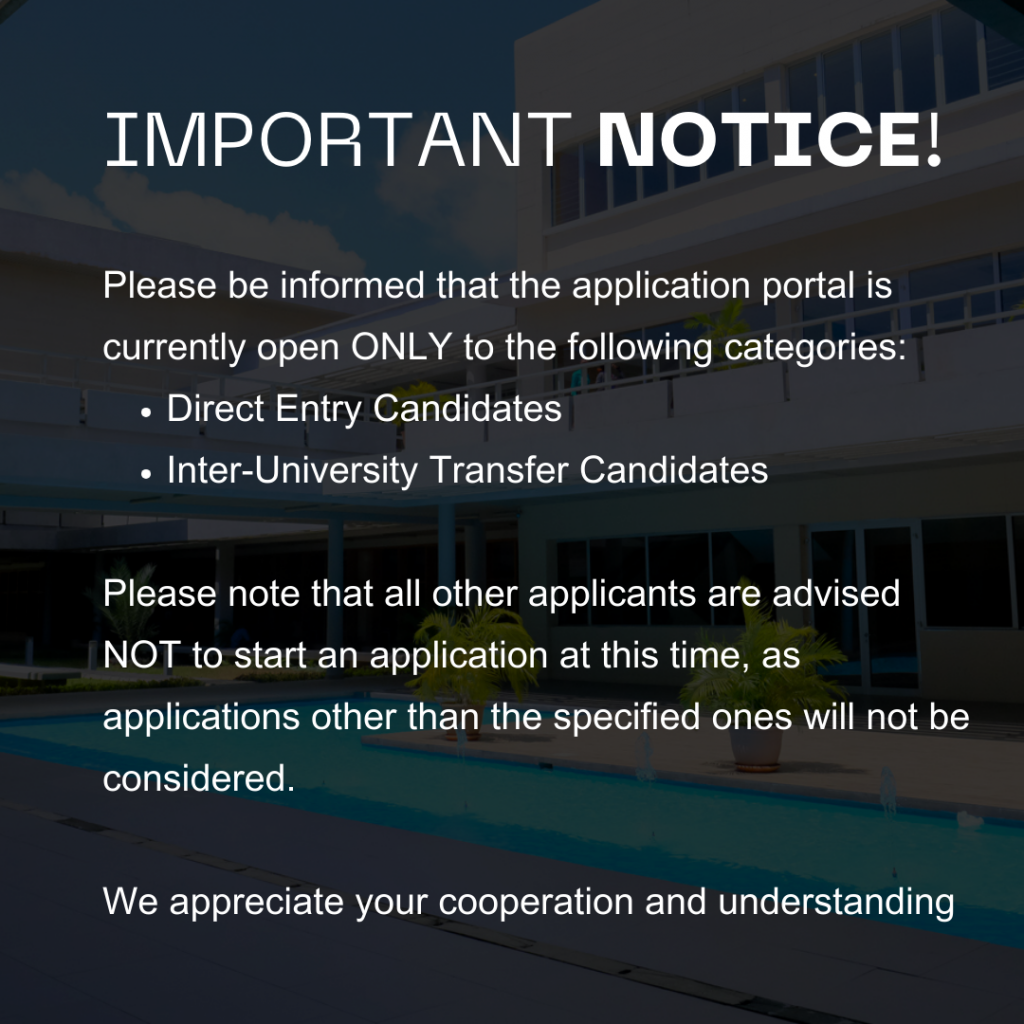Fireside Chat with Richard M. Mills Jr. : Toward a Robust U.S.-Nigeria Commercial and Investment Partnership
In the spirit of practical, impactful dialogue and fostering vital connections, and in line with our strategic goals to drive economic advancement and international partnerships, Lagos Business School (LBS), Pan-Atlantic University played host to a truly significant event. We welcomed His Excellency Richard Mills Jr., the U.S. Ambassador to Nigeria, for a fireside chat titled “Toward a Robust U.S.-Nigeria Commercial and Investment Partnership.” This timely and consequential discussion underscored deepening economic ties and maximizing the immense potential between Nigeria and the U.S
The event, welcomed by the Dean of LBS, Professor Olayinka David West, and moderated by Professor Enase Okonedo, Vice Chancellor of Pan-Atlantic University, served as a platform to articulate the U.S.’s renewed commercial diplomacy strategy in Africa and its specific implications for Nigeria.
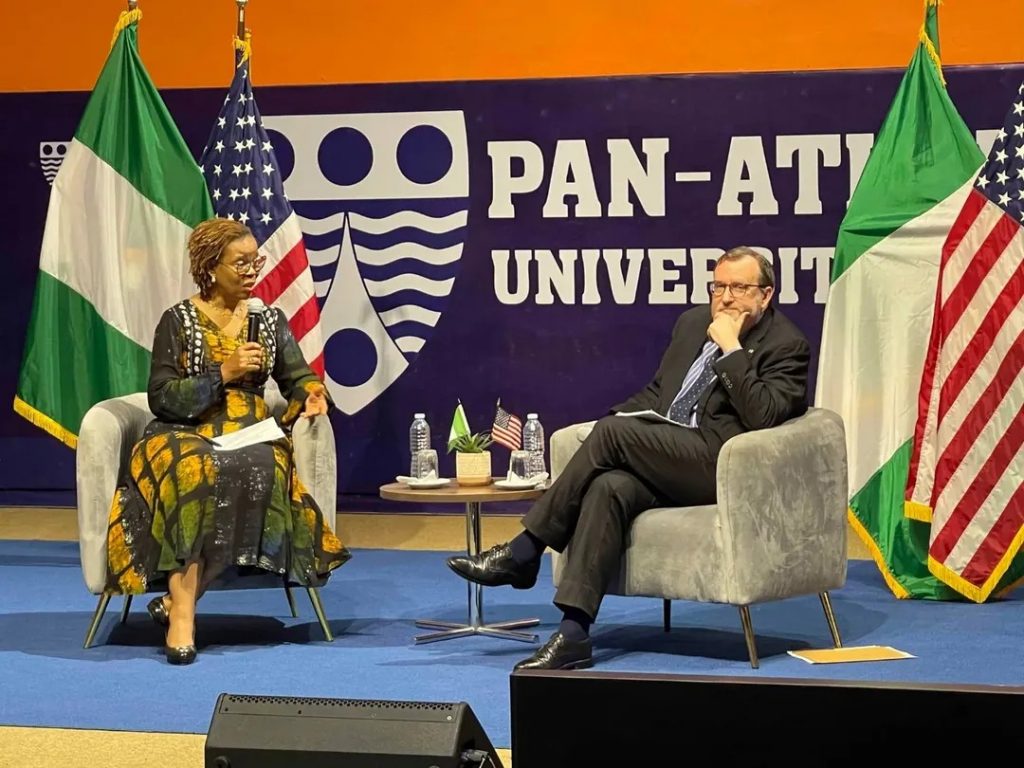
Ambassador Mills Jr. emphasized a significant strategic shift in U.S. engagement with African nations, moving “from aid to trade.” He declared, “We want to engage African nations not as aid recipients but as capable commercial partners.” This new approach, rooted in expanded economic opportunity and deepened commercial engagement, aims for long-term mutual prosperity.
The Ambassador highlighted Nigeria’s critical role, noting its status as Africa’s most populous country and the U.S.’s second-largest trading partner on the continent. With two-way trade in goods and services totaling approximately $13 billion in 2024 and U.S. foreign direct investment reaching $6.5 billion in 2023.
To increase trade, investment and business linkages between the countries, the Commercial and Investment Partnership (CIP) agreement, a five-year Memorandum of Understanding between the U.S. Department of Commerce and Nigeria’s Ministry of Industry, Trade and Investment has been signed. Nigeria is one of only five African nations to have signed such an agreement with the U.S.
According to the Ambassador this process here in Nigeria will create new opportunities, new jobs, boost innovation and unlock some new opportunities for all of us.
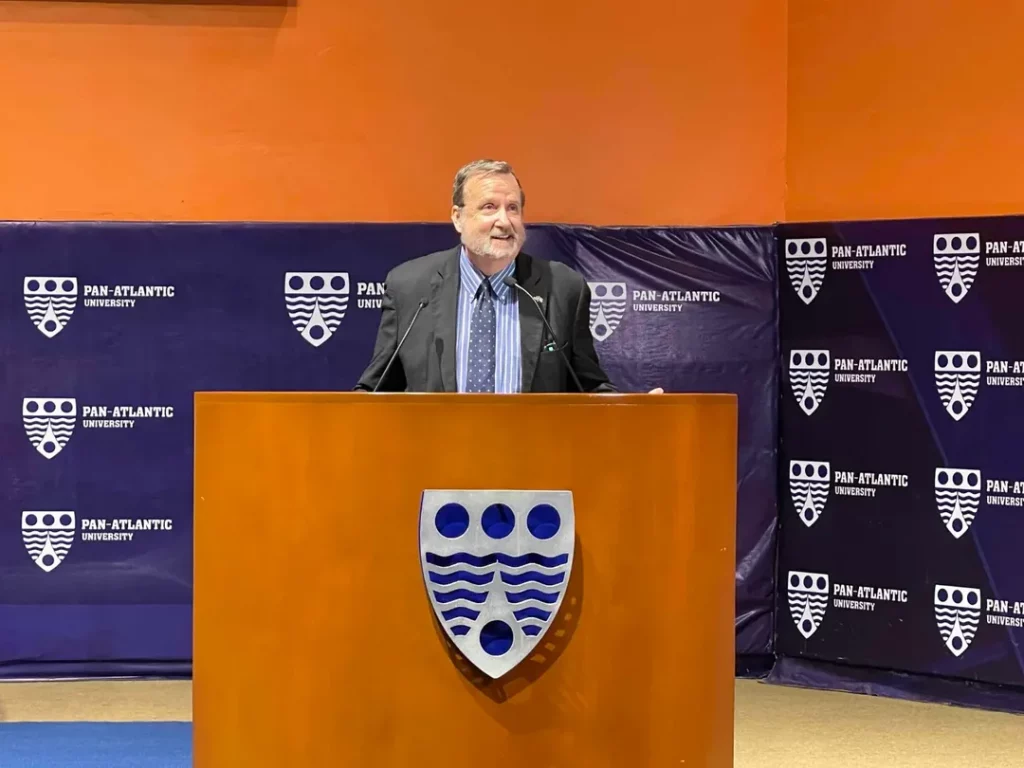
A central theme of the discussion revolved around creating a stable, transparent, and business-friendly regulatory and investment climate. Ambassador Mills Jr. acknowledged the efforts of the Nigerian government in implementing significant economic reforms. He cited positive developments in macroeconomic reforms and tax reforms. However, he also candidly addressed persistent challenges, including unstable electricity, corruption, port congestion, and regulatory lack of fairness and transparency.
On the Chinese commercial engagement in Nigeria, Ambassador Mills Jr. clarified the U.S. stance: “This is not the second round of the Cold War. We’re not asking our friends… to choose a side.” Instead, the U.S. advocates for a level playing field, confident that if given full information and fair competition, American businesses offer unparalleled advantages, including access to the world’s largest capital market, transparent supply chains, and adherence to labor and environmental standards.
He concluded by emphasizing the shared responsibility in fostering this robust partnership: “We’re asking US businesses to step up… we’re asking the Nigerian policy makers… please help us create the conditions to stimulate investment… And we’re asking you, Nigerian students… to please expand your business, your management knowledge in order to be the leaders of Nigeria’s next stage of economic growth and to partner with the United States when you can.”
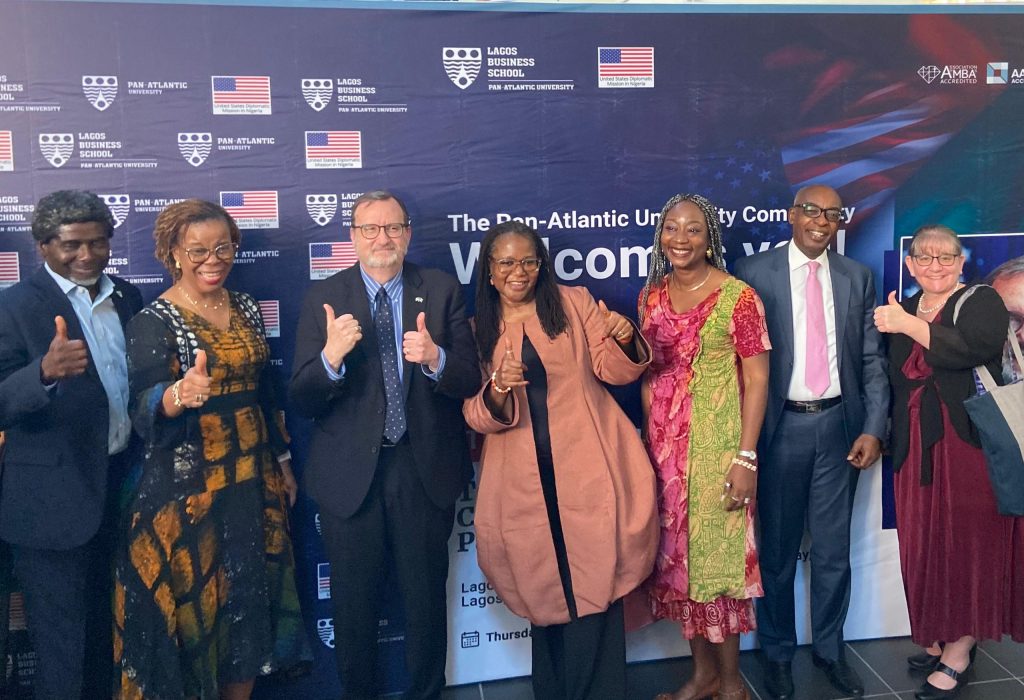
The fireside chat served as a powerful testament to the enduring bond between the U.S. and Nigeria, signaling a promising future of enhanced commercial engagement and mutual prosperity, driven by strategic collaboration and a shared vision for growth.
